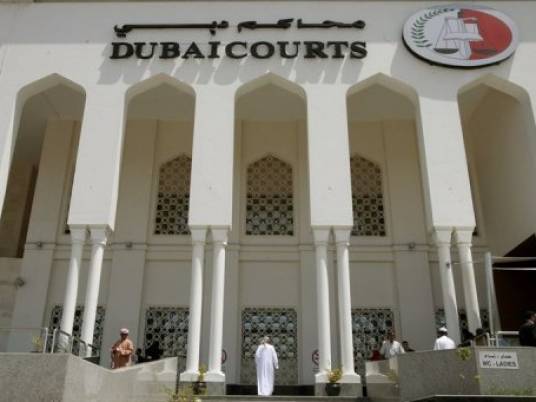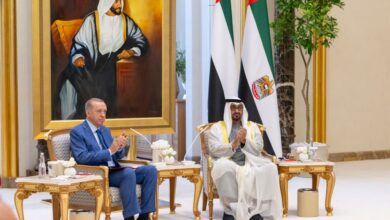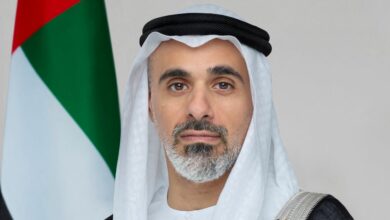
The trial of 94 people accused of plotting to seize power in the United Arab Emirates opened on Monday in the latest move by the Gulf Arab state to address what it says is a security threat from the banned Muslim Brotherhood.
More than 60 people have been detained in a crackdown on Islamists in the past year amid heightened worries among officials about a spillover from Arab unrest elsewhere.
Those on trial also include 13 women who have been charged but were not detained and 10 others who are being tried in absentia, the state news agency WAM reported.
The defendants are accused of "belonging to an illegal, secret organization … that aims to counter the foundations of this state in order to seize power and of contacting foreign entities and groups to implement this plan," WAM said.
International rights groups such as Amnesty International and Human Rights Watch have questioned the fairness of the detentions and legal proceedings.
"The basis of the arrests was never made clear, while lawyers chosen to represent the defendants have been accorded scant access to clients," Amnesty International's UAE researcher, Drewery Dyke, said in a statement.
Announcing the trial in January, the state news agency quoted the attorney general, Salem Saeed Kubaish, as saying that members of the group had sought to infiltrate institutions of the state including schools, universities and ministries.
Their "unannounced aims were to seize power and confront the main principles on which the ruling system is based," he said.
He said the accused, all UAE nationals, had invested money from Brotherhood membership fees and charity funds to set up commercial enterprises and real estate investments held in their own names to conceal their activities from the state.
'Stick to the book'
Among those arrested were many members of al-Islah (Reform), an Islamist group suspected of links to the Muslim Brotherhood, which is banned in UAE, according to the privately-owned UAE newspaper al-Khaleej.
Abdulkhaleq Abdullah, an Emirati political scientist, said the scale of the trial was unprecedented and the authorities had to be careful to conduct proceedings properly.
"For the UAE, this is all very new so … the more they stick to the book, the better," he said.
One of the region's most politically stable nations, largely thanks to its oil wealth and cradle-to-grave welfare system, the UAE has seen none of the violent turmoil that has shaken other parts of the Middle East and North Africa in the past two years.
But some UAE Islamists, inspired by the successes of counterparts in countries such as Egypt and Tunisia, have stepped up their activities, angering the authorities in a country where no political opposition is permitted.
International media were denied access to the court hearing and at least two international observers planning to attend were denied entry to the UAE, including an Amnesty International lawyer.
As about 100 relatives of the defendants gathered in a car park waiting to be bussed to the court to attend the hearing, many denied their family members belonged to the Brotherhood or that there had been a plot to topple the government.
"My father is not a member of the Muslim Brotherhood … What everyone says, it is not true," said 26-year-old Bushra al-Rokn, the daughter of a prominent lawyer who is among the defendants.
Her brother, brother-in-law, husband and her aunt's husband were all also facing trial, she told reporters.
"They are loyal to the Al Nahayan [Abu Dhabi's ruling family] — they have always said that," said one man whose father was among the defendants.
Monday's hearing was procedural, the state news agency said, with a public prosecutor reading out the charges and the punishment stipulated by the law if the defendants are found guilty.
The case was adjourned to 11 March.




